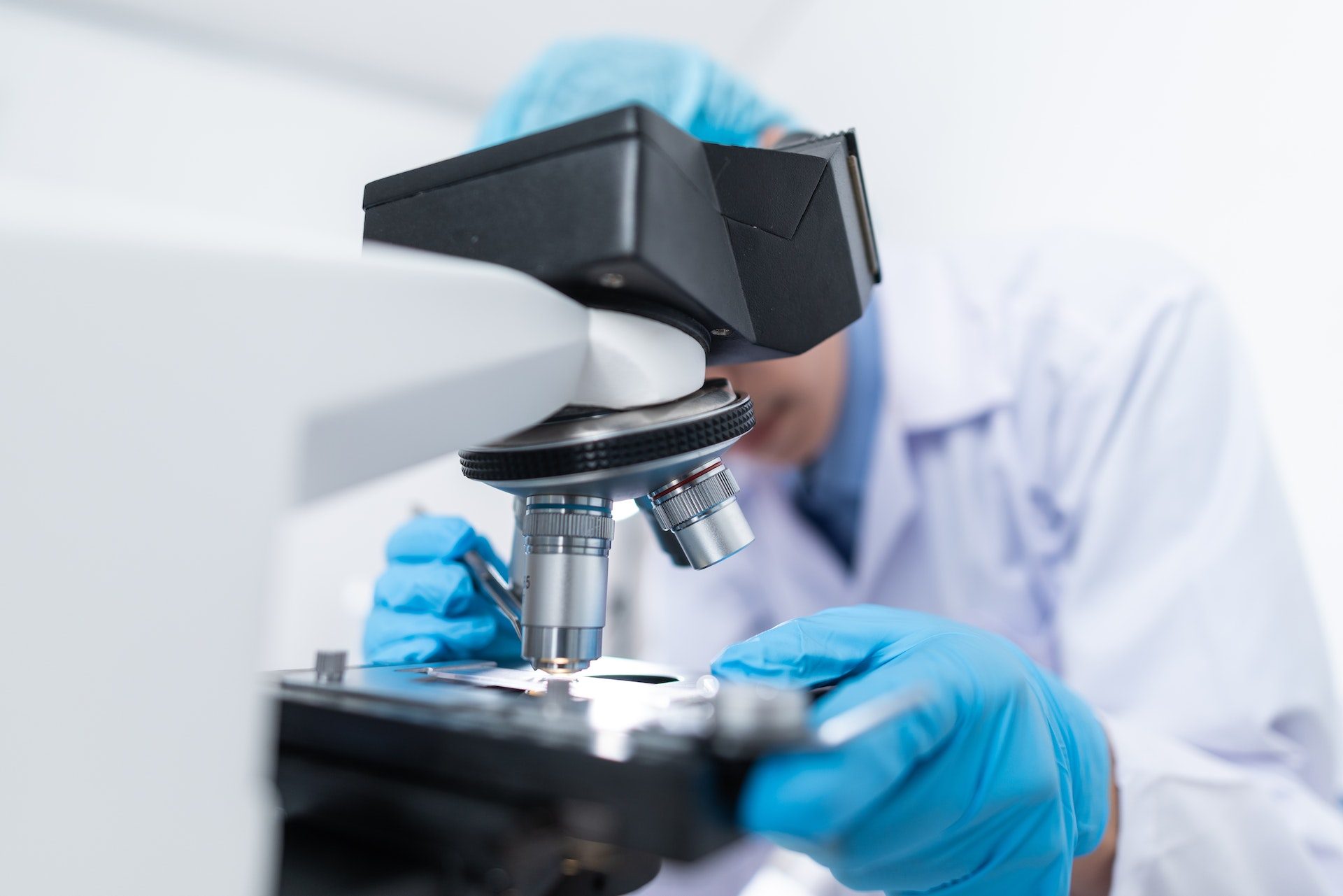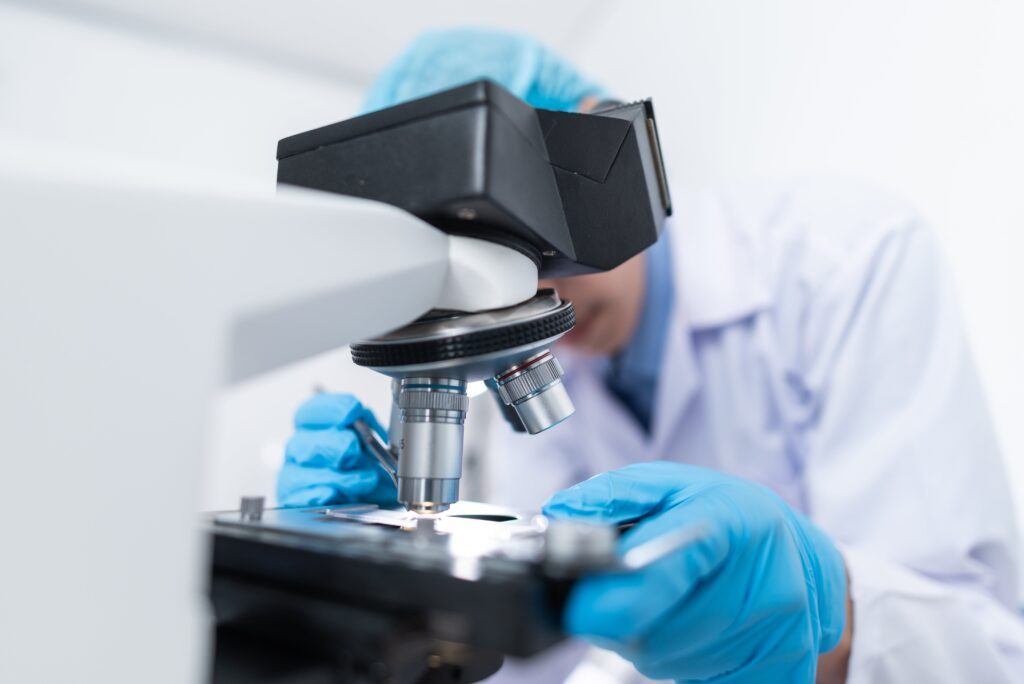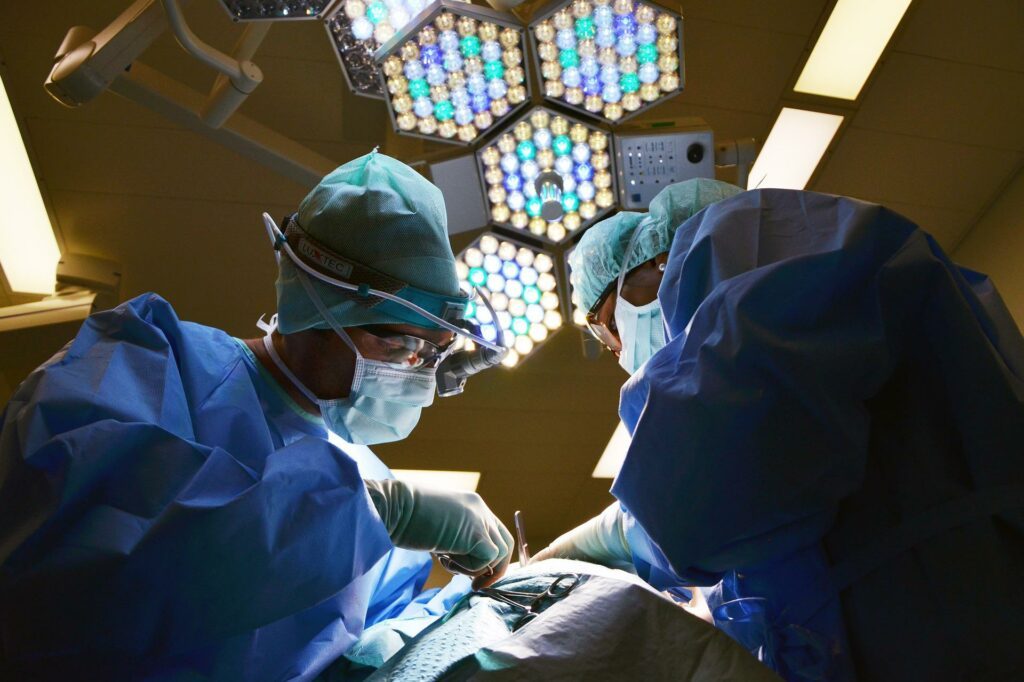Home » News and events »
New £30M research injection to improve treatment of inflammatory diseases

Renewed National Institute for Health and Care Research Birmingham Biomedical Research Centre continue funds for developments around inflammatory diseases

Local people with cancer and heart disease are amongst those set to benefit from a major injection of research funding which will develop new diagnostic tools and treatments for those with cancer, liver and heart disease, and many more illnesses.
The NIHR Birmingham Biomedical Research Centre has today been granted more than £30 million of funding from the National Institute for Health and Care Research, a major funder of global health research and training, to support world-leading research into inflammation and the myriad of diseases and health issues that it can cause.
The centre unites leading NHS providers led by the University Hospitals Birmingham NHS Foundation Trust and academic institutions led by the University of Birmingham. The partnership sees eight organisations working closely with charities and businesses to support research into inflammation which causes or worsens many common long-term illnesses including arthritis, liver disease and cancer.
The announcement sees the NIHR Birmingham BRC increase its funding almost 3-fold and will enable researchers to focus on eight areas of illness including heart disease, women’s health, and common complications from inflammation. It will also enable researchers to consider new tests and biomarkers for disease, health technologies including stem cells and gene therapy, patient experiences and data science.
The funding will allow us to make a step-change in our work tackling different forms of cancer, trialling new drugs for liver disease, and dealing with antimicrobial resistance
Professor Philip Newsome
Professor Phil Newsome, Director of Research and Knowledge Transfer at the University of Birmingham’s College of Medical and Dental Sciences and Director of the NIHR Birmingham Biomedical Research Centre said:
“Inflammation plays a central role in many health conditions, with millions of people in the UK alone experiencing inflammatory diseases such as arthritis and bronchitis.
“The significant increase in funding for the NIHR Birmingham Biomedical Research Centre will enable us to provide an outstanding environment for world-leading clinical research. The funding will allow us to make a step-change in our work tackling different forms of cancer, trialling new drugs for liver disease, and dealing with antimicrobial resistance.”
Improving patient outcomes for illnesses including cancer and liver disease
Patients will benefit from the increased funding for the NIHR Birmingham BRC through collaborative research that has seen nearly 1,000 clinical trials and informed UK clinical guidelines.
Researchers will look at eight themes to continue to understand and help patients manage inflammation-based diseases including cancer, arthritis, and liver disease. The investment of the NIHR funding in biomedical research will enable clinicians, researchers, patients and supporters to find new treatments such as the development of new immunotherapies, which are types of cancer treatments to support the body to fight cancer.

Patient Story – Joy
When Joy needed a liver transplant, the team at University Hospitals Birmingham involved in her care made her aware about an opportunity to take part in a trial through the BRC to better understand sarcopenia.
In many chronic inflammatory diseases, including liver disease, loss of muscle mass and strength (sarcopenia) occurs. Importantly sarcopenia contributes to poor patient quality of life, reduced ability to cope with challenges such as surgery or infection and higher risk of death. The NIHR Birmingham BRC has been investigating inflammatory sarcopenia to find the best treatments and support for patients who experience inflammation-related muscle loss.
Joy said: “It was interesting to be made aware of muscle loss and to be encouraged to do tests [to assess sarcopenia]. Following the two-day assessment, I was encouraged to increase protein in my diet because of muscle loss and the trial reinforced how important that was. I think the trial made me feel like I was doing something positive at a time when some things in my life were dampening down.”
“After the transplant, one of the first people I saw in hospital was a member of the research team. She had heard I had had the op and made a point of dropping by. We had a lovely chat. As a beneficiary of liver transplant and the improving outcomes for liver transplant patients, I am heartily in favour of research in this as well as other medical fields.”
Tim Jones, Chief Innovation Officer, at University Hospitals Birmingham NHS Foundation Trust said:
“We are delighted with the award to the NIHR Birmingham BRC which builds on our successful track record of joint working in Inflammatory disease, the award will significantly support the acceleration of new discoveries for the benefit of our patients”.
Full list of themes that are part of the NIHR Birmingham Biomedical Research Centre
- Arthritis
- Heart and circulatory inflammation
- Liver Disease
- Cancer-related inflammation
- Oral and intestinal health
- Infection & Acute Care
- Inflammatory diseases unique to, or most common, in women
- Muscle wastage (sarcopenia)
- Next Generation Therapies
- Data, Diagnostics and Decision Tools
- Patient Reported Outcomes
Step change in data and digital healthcare
Researchers based at the NIHR Birmingham BRC will also support a major improvement in how data and digital healthcare can improve patient outcomes.
The Data, Diagnostics and Decision Tools theme will see the development of new infrastructure and innovation to tackle major challenges in the use and interpretation of data in biomedical research. Bringing together expertise across a range of disciplines including clinical trials, health informatics, and artificial intelligence, increased funding will see improvements in the way data is held and used to uphold the highest levels of research integrity.
The expanded funding will also enable the NIHR Birmingham BRC to invest in research excellence and create additional capacity, to collaboratively focus on key wider areas of clinical practice including the development of new tests and biomarkers, and next generation therapies such as stem cell and gene therapy.
Case study – infrastructure to support innovation:
Mark Maybury joined the Birmingham Rheumatology Research Group in 2018, supported by the NIHR-funded Birmingham Biomedical Research Centre. Coming from a clinical role as a physiotherapist and musculoskeletal sonographer, Mark has been working with academics to support research trials for rheumatoid arthritis drugs and has been involved in pioneering work in the use of ultrasound-guided synovial joint biopsies.
Mark said: “One of the many reasons that attracted me to move into this research post at this institution was the opportunity to learn and during my time at the Birmingham BRC I have been given the opportunity for personal study and involvement in research. But as well as learning myself, I’ve also had the opportunity to pass on my knowledge – training research fellows in diagnostic ultrasound and to develop new instrumentation for ultrasound guided synovial biopsy. The results of the studies I have worked on will help influence the treatment of hundreds of thousands of patients, not only in the UK but worldwide, which is more patients than I ever could ever help as a clinician. I find that a very sobering thought.”
The investment from NIHR is hugely important for researchers working across the BRC partner institutions, to continue to tackle some of the critical health themes that affect our region
Professor David Adams
Professor David Adams, Pro-vice Chancellor and Head of the College of Medical and Dental Sciences at the University of Birmingham, and director of the previous NIHR Birmingham BRC said:
“The investment from NIHR is hugely important for researchers working across the BRC partner institutions, to continue to tackle some of the critical health themes that affect our region.
“The funding will allow us to bring together teams that can use an in depth understanding of disease processes to deliver new therapies and diagnostic tests for a range of chronic inflammatory diseases for which we currently have few effective treatments.”

BRC funding nationally
The NIHR Birmingham BRC is among 20 centres across England that have been awarded a combined £790 million by the National Institute for Health and Care Research, to translate scientific discoveries into new treatments, diagnostic tests and medical technologies for patients.
NIHR Biomedical Research Centres are partnerships between healthcare professionals and academics in the country’s leading NHS trusts and universities. The centres, part of NIHR’s research infrastructure, receive substantial levels of sustained funding to attract the best scientists and create an environment where experimental medicine can thrive.
The Birmingham Biomedical Research Centre is made up of the following partners:
- University Hospitals Birmingham NHS Foundation Trust
- University of Birmingham
- Sandwell and West Birmingham NHS Trust
- Birmingham Women’s and Children’s NHS Foundation Trust
- Birmingham Community Healthcare NHS Foundation Trust
- Keele University
- Aston University
- University of Oxford
Professor Lucy Chappell, Chief Executive of the NIHR, said:
“Research by NIHR Biomedical Research Centres has led to a number of ground-breaking new treatments, such as new gene therapies for haemophilia and motor neurone disease, the world-first treatment for Creutzfeldt–Jakob disease, a nose-drop vaccine for whooping cough, and the first UK-wide study into the long-term impact of COVID-19.
“This latest round of funding recognises the strength of expertise underpinning health and care research across the country and gives our nation’s best researchers more opportunities to develop innovative new treatments for patients.”


